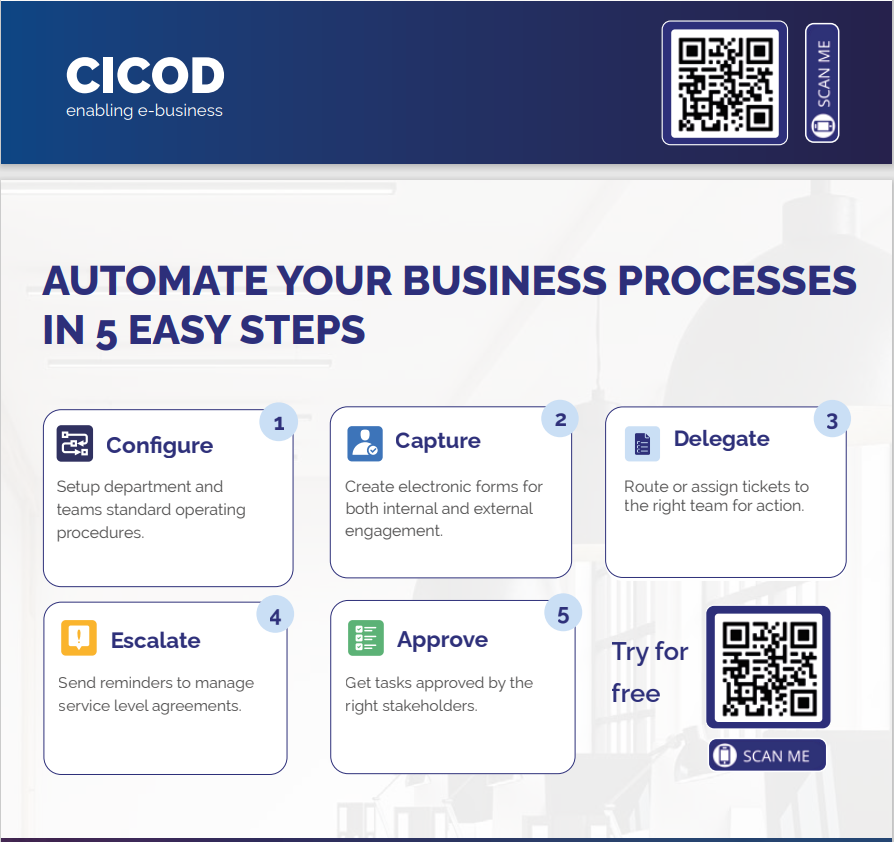
Automate & Streamline: Hospitality Business Processes

In an era where efficiency and seamless customer experiences are paramount, the hospitality industry faces numerous challenges in keeping up with the demands of a rapidly evolving market. Manual operation processes that once sufficed now hinder growth and pose limitations. However, the solution lies in embracing automation and leveraging cutting-edge technologies to revolutionize the way businesses operate.
From hotels and restaurants to travel agencies and event venues, all facets of the hospitality industry can benefit from streamlining their operations. By automating repetitive and time-consuming tasks, businesses can free up valuable resources, enhance operational efficiency, and elevate the overall guest experience. Whether it’s automating reservations and check-ins, managing inventory and procurement, or optimizing customer service and personalization, automation holds the key to unlocking new heights of success. Together, we will discover how embracing these technological advancements can lead to increased productivity, reduced costs, improved guest satisfaction, and ultimately, a competitive edge in a dynamic marketplace.



Automation in the hospitality industry brings key benefits such as increased efficiency, improved guest experience, enhanced revenue management, and efficient inventory management.

Workflow automation and inventory automation are pivotal success factors driving the growth of the hospitality industry.

Automation refers to the use of technology and software to perform tasks and processes with minimal human intervention. It involves the integration of various systems and tools to streamline operations, eliminate manual work, and enhance efficiency. In the context of the hospitality industry, automation can encompass a wide range of functions, such as reservations and bookings, guest management, inventory control, billing and payments, marketing and communication, and more. Automation is crucial in the hospitality industry for several reasons:
1. Enhanced Efficiency: By automating repetitive and time-consuming tasks, businesses can significantly increase operational efficiency. This allows employees to focus on more strategic and guest-centric activities, ultimately improving overall productivity.
2. Streamlined Processes: Manual operation processes in hospitality often suffer from inefficiencies, such as errors, delays, and miscommunication. Automation helps streamline these processes, reducing errors, enhancing communication, and ensuring seamless operations from end to end.
3. Cost Savings: Automation can lead to significant cost savings by reducing labor expenses and minimizing human errors. By automating tasks like reservation management, inventory control, and billing, businesses can optimize resource allocation and reduce the need for manual intervention, ultimately saving time and money.
4. Improved Guest Experience: Automation plays a vital role in enhancing the guest experience. With automated systems, businesses can provide faster and more accurate bookings, personalized services, and streamlined check-ins and check-outs. This results in improved guest satisfaction, loyalty, and positive reviews.
5. Data-Driven Insights: Automated systems generate a wealth of data that can be leveraged for business intelligence and decision-making. Analyzing this data provides valuable insights into guest preferences, trends, and operational performance, enabling businesses to make informed decisions and tailor their services accordingly.
6. Competitive Advantage: In today’s competitive hospitality landscape, embracing automation gives businesses a distinct advantage. By offering seamless and efficient experiences to guests, businesses can differentiate themselves from competitors and attract more customers.
The UK hospitality industry faces a multitude of challenges, with strikes and resource management issues being particularly significant. Strikes, particularly rail and tube strikes, have a profound impact on the industry, resulting in substantial financial losses estimated at £600 million. This not only affects the revenue but also poses a major resource management challenge, as absent staff members disrupt the smooth operation of businesses. The reliance on manual processes exacerbates the issue, making efficient resource management a critical obstacle to overcome.
One pressing concern arising from strikes is the disruption in the supply chain. Prominent restaurants often experience food shortages due to strikes by suppliers, further impeding their ability to provide a seamless dining experience to customers. To tackle this challenge, implementing a streamlined inventory management and automation system becomes imperative. Such a system can help optimize inventory levels, enhance forecasting accuracy, and ensure a consistent supply of essential items. By integrating an efficient supply chain management solution, businesses can proactively address supplier strikes, minimize food shortages, and maintain their reputation for quality and reliability.
Moreover, strikes also lead to staff shortages, making effective resource allocation and management paramount. With manual processes in place, businesses struggle to efficiently distribute available resources to meet operational demands. Investing in automation solutions that streamline resource management can significantly mitigate this challenge. Automation tools can assist in optimizing staff schedules, simplifying shift assignments, and ensuring smooth communication between teams. By leveraging automation, businesses can adapt to staff absences more effectively, minimize disruptions, and maintain service excellence even during periods of strikes.
Beyond strikes, resource management issues persist in the hospitality industry on a day-to-day basis. Manual processes often result in inefficient utilization of resources, such as excessive labor costs or inadequate inventory control. Adopting automated systems can address these challenges comprehensively. For instance, implementing an automated staff scheduling system enables businesses to optimize shifts, reduce labor costs, and improve employee productivity. Additionally, integrating an automated inventory management system ensures accurate tracking of stock levels, facilitates real-time ordering, and minimizes wastage. By embracing automation, businesses can optimize their resource allocation, reduce costs, and enhance operational efficiency.
Brexit has significantly impacted the UK’s hospitality industry, resulting in labor shortages and supply chain disruptions. With the end of free movement, it has become more challenging for employers to recruit and retain EU workers, leading to difficulties in meeting staffing demands. Sectors like transport, hospitality, and retail have been particularly affected, with a reported 330,000 fewer workers in the country. To address labor shortages, businesses can leverage workforce management (WFM) solutions to efficiently manage resources and overcome staffing challenges.
Moreover, Brexit has introduced new customs and regulatory processes, causing supply chain disruptions in the hospitality industry. Border delays, increased paperwork, and additional costs have impacted the availability and pricing of goods and ingredients used by businesses. Implementing effective inventory management systems and automated supply chain systems can help businesses navigate these challenges by optimizing inventory levels, ensuring timely ordering, and minimizing the impact of supply chain disruptions.
In summary, the impact of Brexit on the UK’s hospitality industry has manifested in labor shortages and supply chain disruptions. Leveraging WFM solutions can aid in resolving resource management issues caused by labor shortages, while implementing robust inventory management systems can mitigate the effects of supply chain disruptions. By adopting these solutions, businesses in the hospitality industry can proactively address the challenges posed by Brexit and strive towards operational resilience and success.
In Duetto’s 2022 Revenue Outlook & Trends report, a comprehensive survey conducted among hospitality professionals, the growing importance of hotel automation was revealed. With 77.6% of the 210 respondents expressing their intention to increase spending on hotel technology within the next three years, it is clear that automation and system integration have emerged as critical tools for success, especially in highly competitive markets. Furthermore, 56.2% of participants acknowledged the increasing significance of automation in hotel revenue management, surpassing its importance in previous years.
The rapid expansion of hotel automation can be attributed to both its significant benefits and the rising demand for automated services from travelers. Hotel automation not only streamlines operations but also enhances the guest experience. This positive impact on both hotels and guests has driven the exponential growth of automated services within the industry.
In parallel, the UK’s restaurants, accommodation, and nightlife sector has witnessed an increase in software spending from 2018 to 2024. This trend is exemplified by Growyze, a UK-based company that recently secured €735k in funding to revolutionize stock control processes for the hospitality industry. The success of such companies highlights the growing number of emerging companies dedicated to automating services and operations, recognizing the immense value automation brings to the industry.
As the hospitality industry embraces automation, it becomes evident that investing in technology and automated solutions is not just a passing trend but a strategic imperative. The integration of automation systems optimizes efficiency, enhances revenue management, and ultimately elevates the overall guest experience. By embracing this digital transformation, hotels and businesses in the hospitality sector position themselves at the forefront of innovation and create a pathway to sustained success in a highly competitive landscape.
Implementing automation in Hospitality business offers numerous benefits, particularly in the areas of workflow automation, supply chain automation, and inventory management. With workflow automation, you can streamline and optimize your business processes, eliminating manual tasks and reducing errors. This leads to increased efficiency, improved productivity, and faster turnaround times.
Supply chain automation allows for seamless coordination and integration of various processes involved in the procurement, production, and delivery of goods or services. By automating supply chain operations, businesses can enhance visibility, minimize delays, and improve overall supply chain performance.
Effective inventory management is crucial for businesses, and automation can revolutionize this aspect. Automated inventory management systems provide real-time tracking, accurate forecasting, and automated replenishment, ensuring optimal inventory levels, reducing stockouts, and minimizing holding costs.
Overall, implementing automation in your business empowers you to optimize workflows, enhance supply chain operations, and achieve efficient inventory management. By harnessing the power of automation, you can streamline processes, improve productivity, reduce costs, and ultimately gain a competitive edge in your industry.
With CICOD’S WorkFlow Manger, your hospitality business can avail the following benefits:





